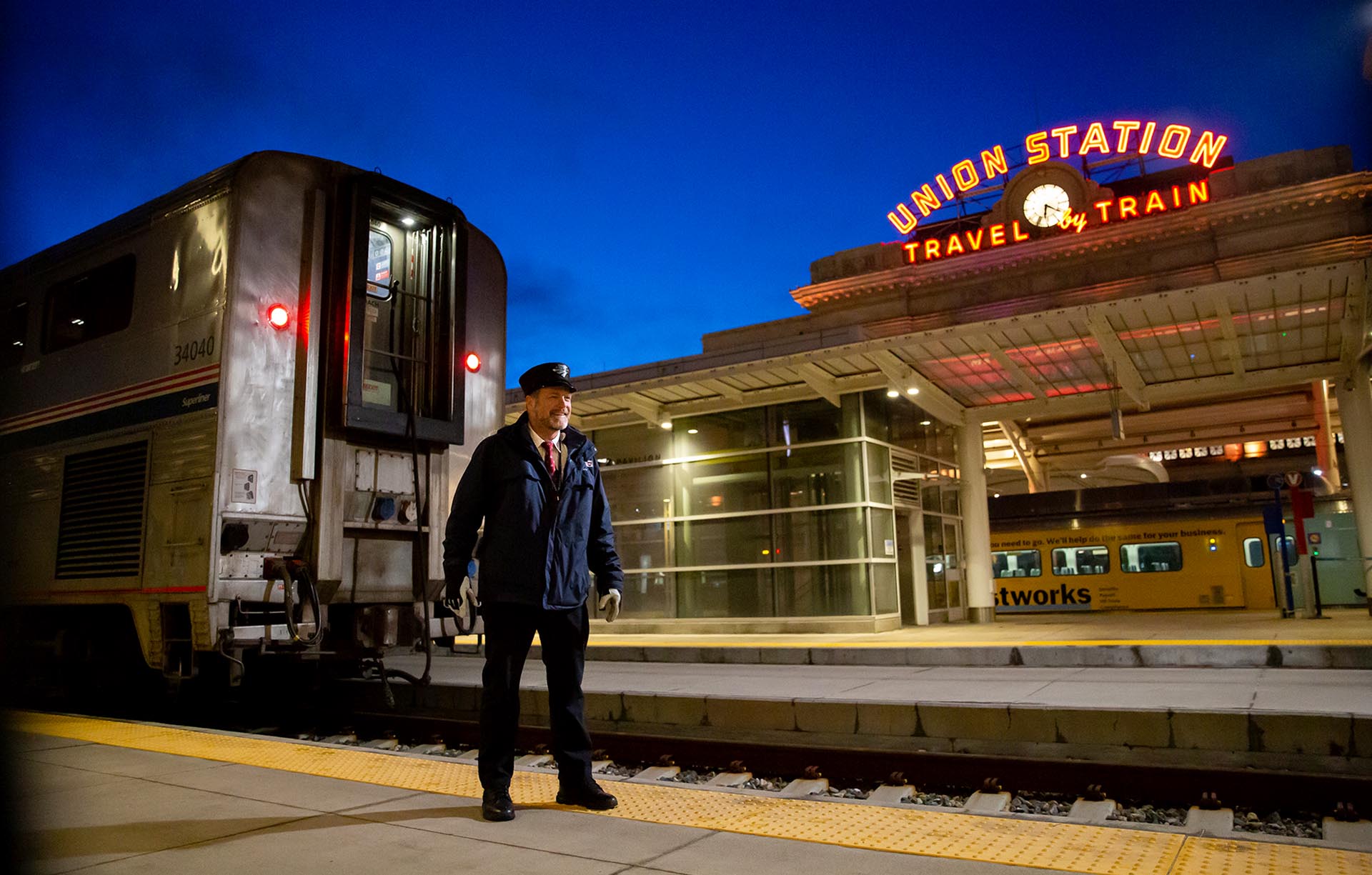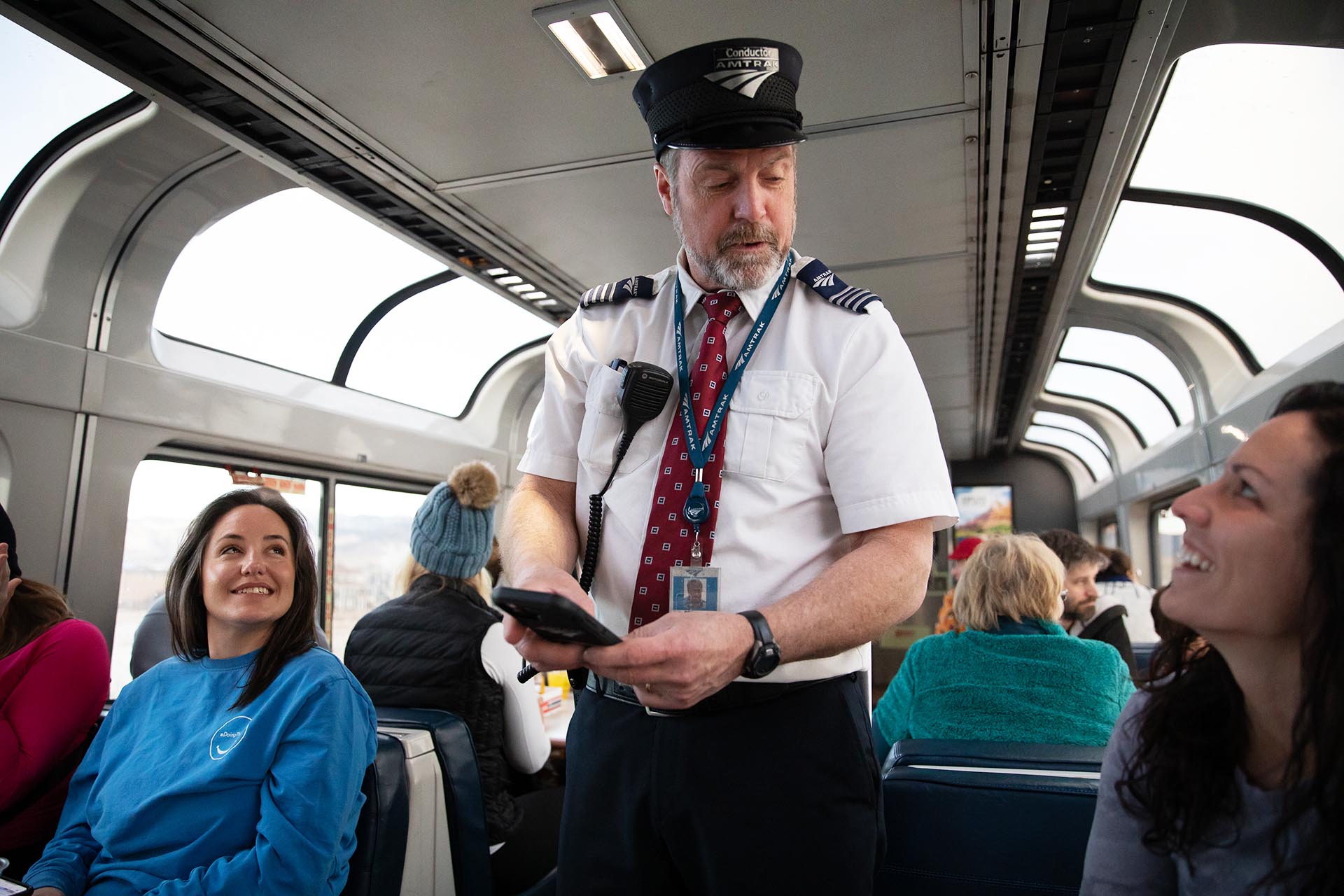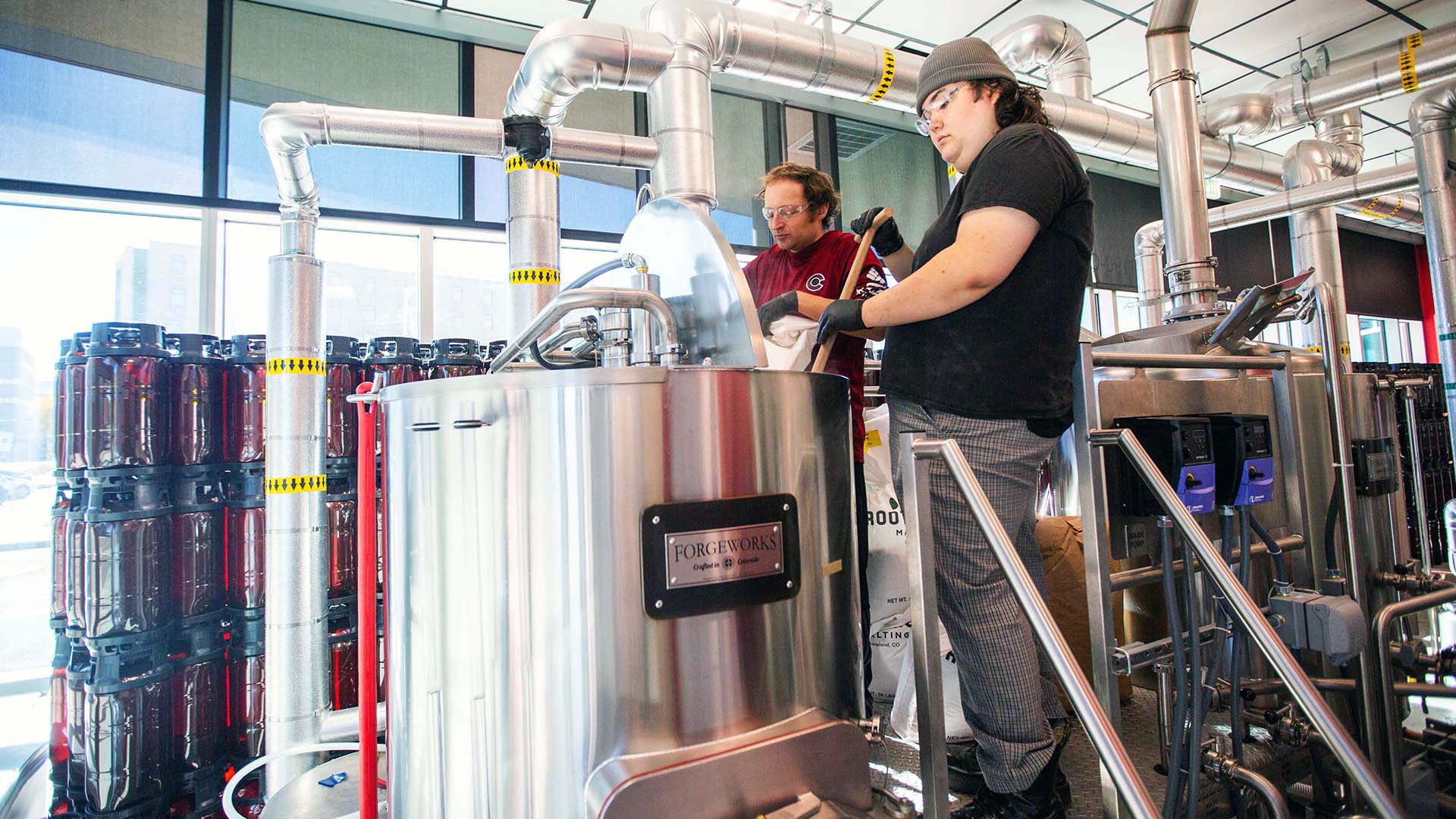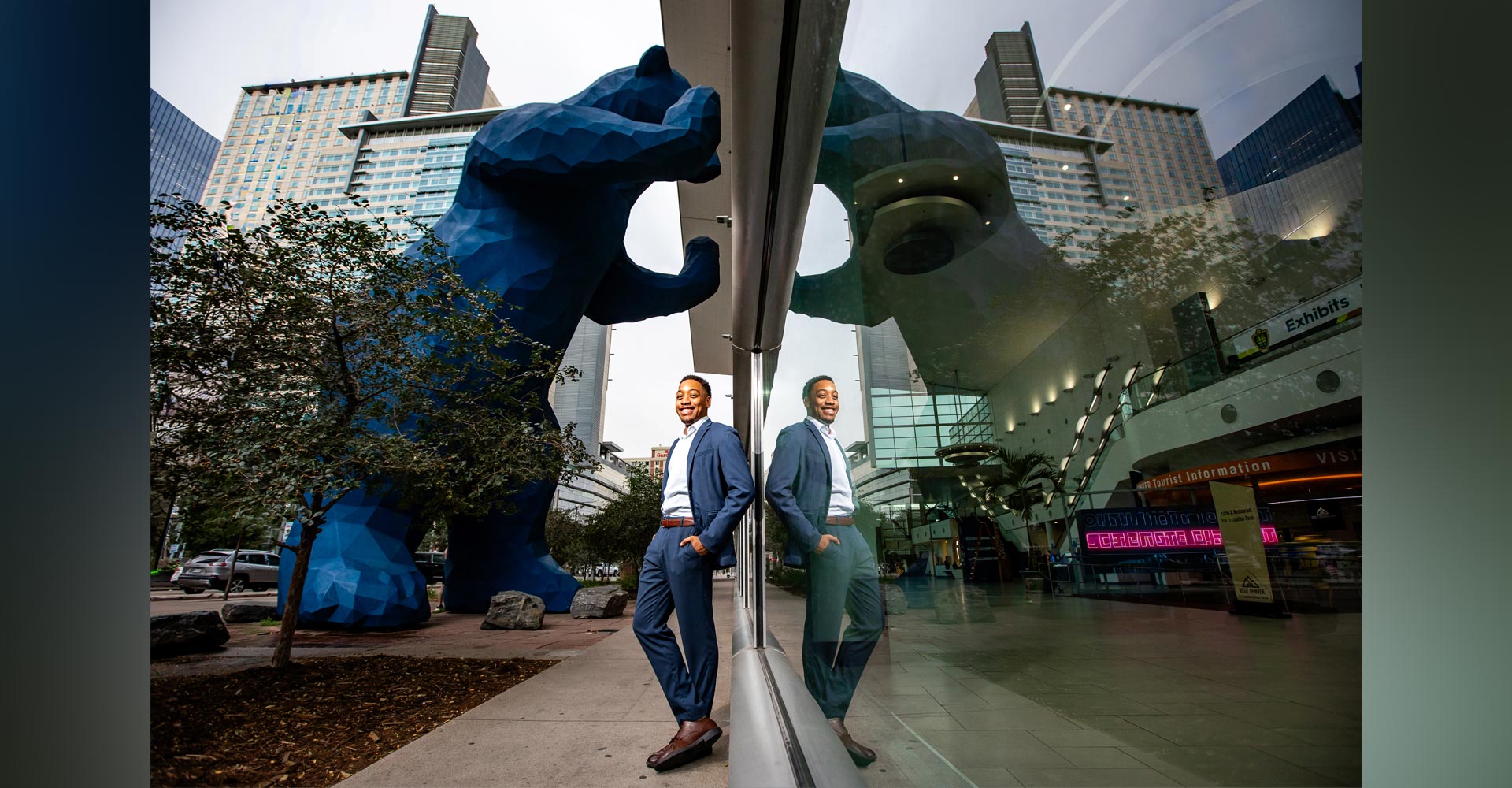The Winter Park Express is a runaway success story
Meet the man who helped revitalize the one-of-a-kind ski train.
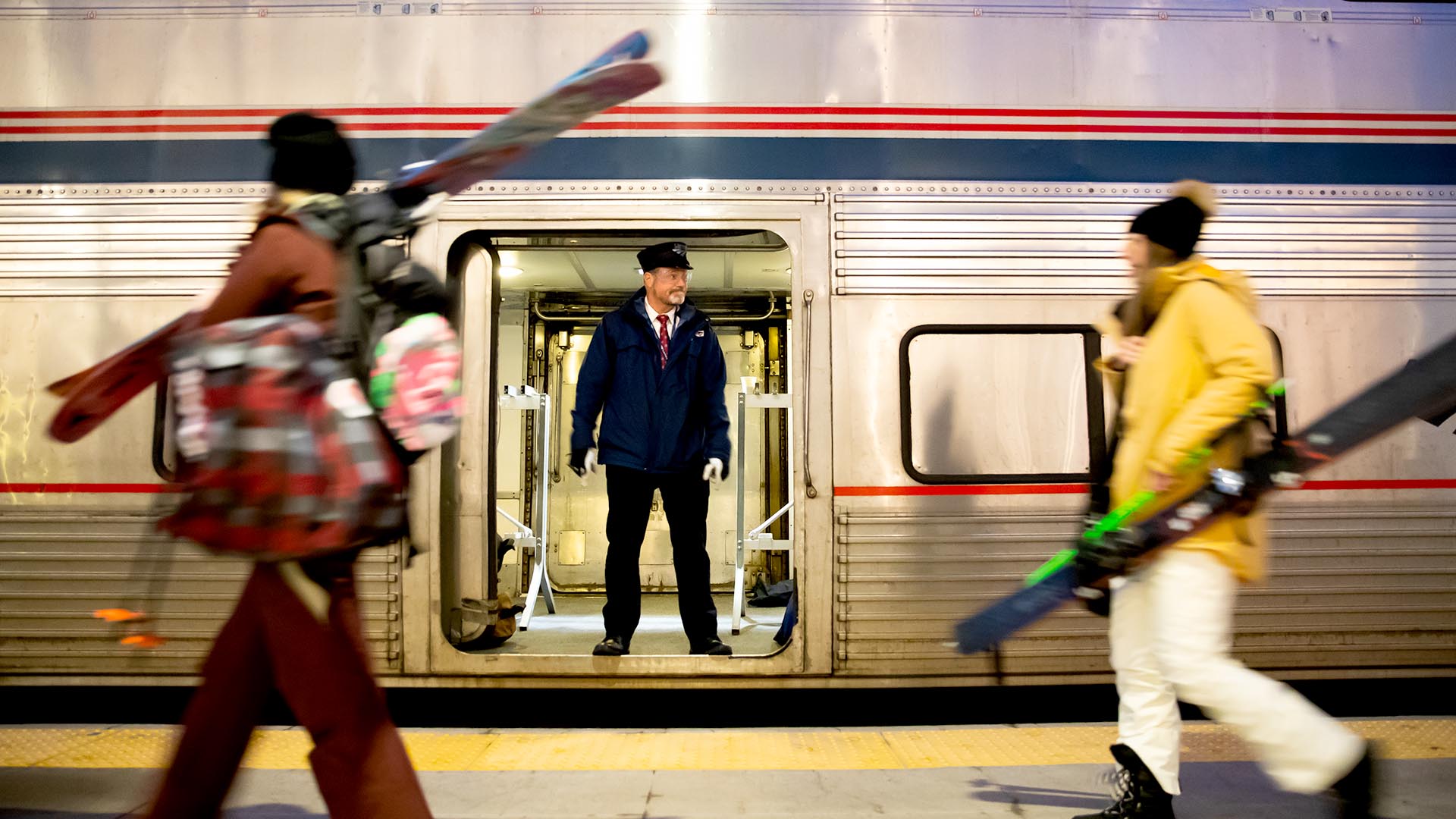
There was a time when Brad Swartzwelter, a graduate of Metropolitan State University of Denver’s School of Hospitality, thought he would like to be in the clergy. His penchant for missing class to “go watch trains,” however, led to his dismissal from Bible college. The closing of one door often opens another, as the saying goes, and today that passion for train-watching has led to a career with Amtrak. The company, specifically its Winter Park Express train, is all the better for it.
This winter’s over-the-top snowfall in Colorado, in fact, has turned that Amtrak line into a runaway success story. With close to 300 inches of snow, demand for a train that seamlessly whisks passengers from downtown Denver to slopeside at the Winter Park resort is off the charts. The Winter Park Express, which runs January through March each year, is one of two profitable passenger trains in the Amtrak system, with the other being the Auto Train, Swartzwelter said.
“This year, it sold out 90% of its runs,” he said.
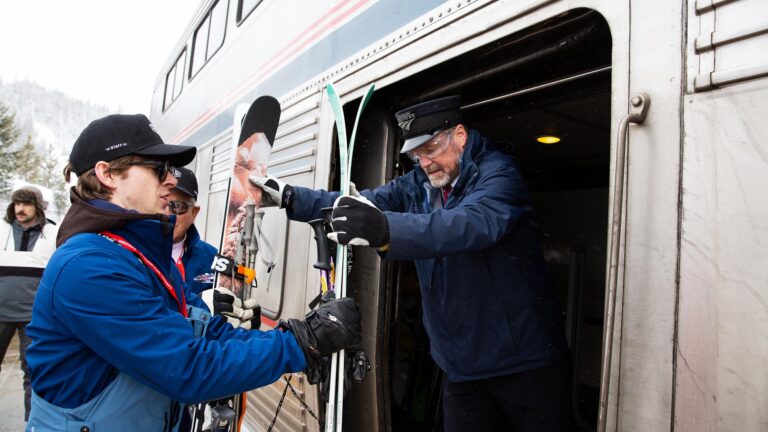
A sign of the times
The ski train, as it was first called, can trace its origins to 1936, running from Denver to Hot Sulpher Springs for four winters, said Steve Patterson, who authored a history of the train published in 1995 by the Colorado Railroad Museum. After that original train passed through the 6-mile-plus Moffatt Tunnel, passengers were treated to a winter wonderland on the other side. The City of Denver saw the opportunity to create a new ski resort there, and the train began stopping at Winter Park after it opened in 1940.
While the ski train was extremely popular for decades, ridership slumped in the 1980s, and the local Ansco Investment Co. took over. Its investment in the line proved fruitful until 2009, when escalating costs and other factors led to its closure. Then along came Swartzwelter, who in 2015 was working as a conductor for Amtrak.
“I helped write a business plan that I presented to Winter Park and Amtrak leadership,” he said. “After giving executives a tour, we did a demo run in March 2015 and it sold out immediately.”
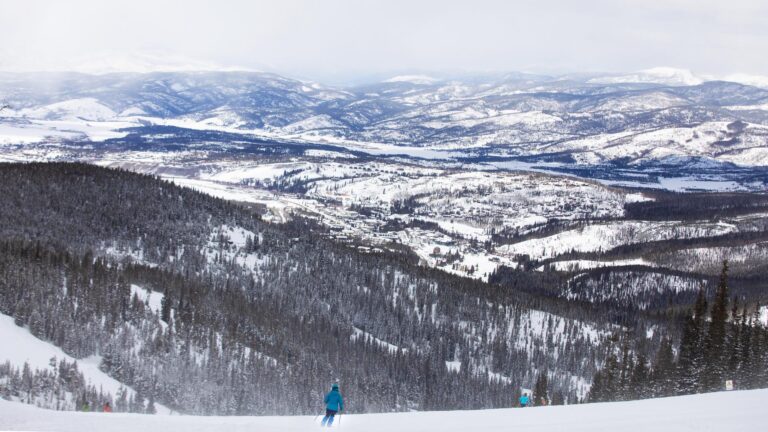
Among the City of Denver, Amtrak and Winter Park — along with financial support from the Colorado Rail Passenger Association (ColoRail) — a modernized ski train rose from the ashes.
|
All aboard! The Winter Park Express runs every Friday through Sunday, January through March, and leaves Denver’s Union Station at 7 a.m., depositing skiers onto a heated platform at Winter Park just before it opens at 9 a.m. The return trip leaves the resort at 4:30 p.m., bringing passengers back to Denver at 6:40 p.m. Tickets range from $34 to $58 per person each way.
|
|
The train itself stands unique in the world, Swartzwelter said. “This is a double-decker car, allowing passengers to stow their skis on the level below their seats,” he said, “and it’s a one of a kind.”
Passenger-train enthusiast
Swartzwelter began his studies at MSU Denver in 1991 at age 27, pursuing a degree in Hospitality, Meeting and Travel Administration.
“I wanted to follow my passion for passenger trains, which really are rolling hotels, if you think about it,” he said. “I looked around the country for the best program fit, and it was right here in Denver. The training I received was perfect.”
Swartzwelter credits the small class sizes and teaching staff at the University for giving him the right tools to go after his dream. While at MSU Denver, Swartzwelter had the opportunity to participate in an Ansco train internship, marrying his degree program with his favorite form of travel. “That internship made all the difference in my career path,” he said.
Now, as Swartzwelter eyes retirement in the coming few years, he’s looking to facilitate similar opportunities for MSU Denver students.
“It can be tough to pull off an internship with a big company if their headquarters isn’t local, but I’ve been talking to Human Resources, and I believe we’ll pull it off,” he said. “The key to an internship is that it’s a paid, realistic learning experience, and that’s what I’m after for MSU Denver students.”
Before he leaves his role with Amtrak, Swartzwelter would also like to see the Express train expand capacity. The demand is there.
“It’s popular and unique to both the travel and ski industries,” he said. “We have something local that other schools with well-known hospitality programs don’t. MSU Denver is perfectly positioned to prepare people for the future of the train.”
In 1991, the program was also perfectly positioned to receive one ex-seminary student who took his education and turned it into the career of his dreams.

